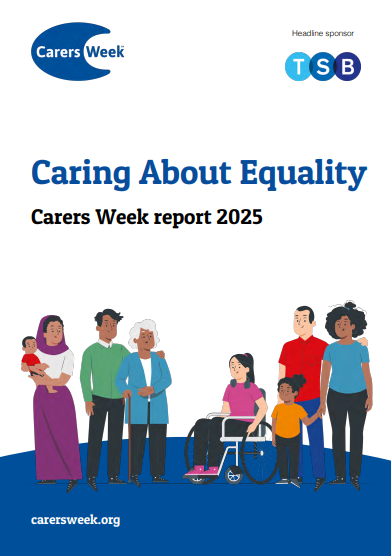Millions of the UK’s unpaid carers who look after disabled, older or ill relatives feel disadvantaged and are unable to prioritise their own health needs, with many developing new mental and physical health conditions since they have started caring.
The Caring About Equality report published on the first day of Carers Week, delves deeper into the impacts of caring for current and former carers and explores the disadvantages that carers feel they face relative to people without caring experience.
The research finds that over a fifth of people (22%) are currently providing unpaid care, and 46% of people have provided care at some point – either now or in the past. As a result, we estimate there are 11.9 million people currently providing unpaid care in the UK, and 24.9 million people who have provided unpaid care at some point in their lives.
The report looks specifically at key health and wellbeing issues, finding that:
- 43% of current or former carers – an estimated 10.7 million people – have seen a mental or physical health condition develop or become worse since taking on a caring responsibility for someone. This figure is higher again for current carers at 48%.
- Over half (58%) of current and former carers feel they are at a disadvantage as they are not able to look after their own physical or mental health in the same way as those without caring responsibilities.
- 39% of current and former carers who had a health condition develop or become worse said that being able to take regular breaks from caring would have helped prevent this.
- 40% of current carers said they had postponed or cancelled a medical appointment, test, scan, treatment, or therapy because of caring, with 44% of those cancelling appointments saying they couldn’t find appointments at a time they could attend.
- A higher proportion of female (both current and former) carers said they face disadvantages with their health compared with males (64% compared with 52%).
The research clearly sets out the significant impacts of providing unpaid care and the disadvantages that current and former carers feel they face in their health, finances, work, education and social contact. Many of these negative impacts could be prevented with greater recognition and targeted support. This is particularly important as many carers do not feel they have a choice in providing unpaid care.
Significant and sustained action is needed to address the inequalities faced by carers, particularly on carers’ own health and wellbeing. With such a high proportion of carers struggling to look after their health and wellbeing, and many carers having to cancel their own medical appointments due to the demands of their caring role, this needs to be a key focus for change. Addressing these issues will also help improve the health and wellbeing of carers in the workplace, preventing people from having to give up work.
The charities supporting Carers Week 2025 call on the UK Government to address the inequalities that carers of all ages currently face by committing to coordinated cross-Government action in support of unpaid carers, including engagement with carers of all ages and wider stakeholders. This should lead to the delivery of a new National Carers Strategy that is backed by clear investment and specific actions that deliver tangible progress for carers and those they care for. Such an approach is needed to address the complex and interrelated challenges that carers are facing.
The report also sets out a range of recommendations covering carers’ finances, health and social care, employment, including recommendations for public bodies, education providers and employers.

The Caring About Equality report is available to download.

